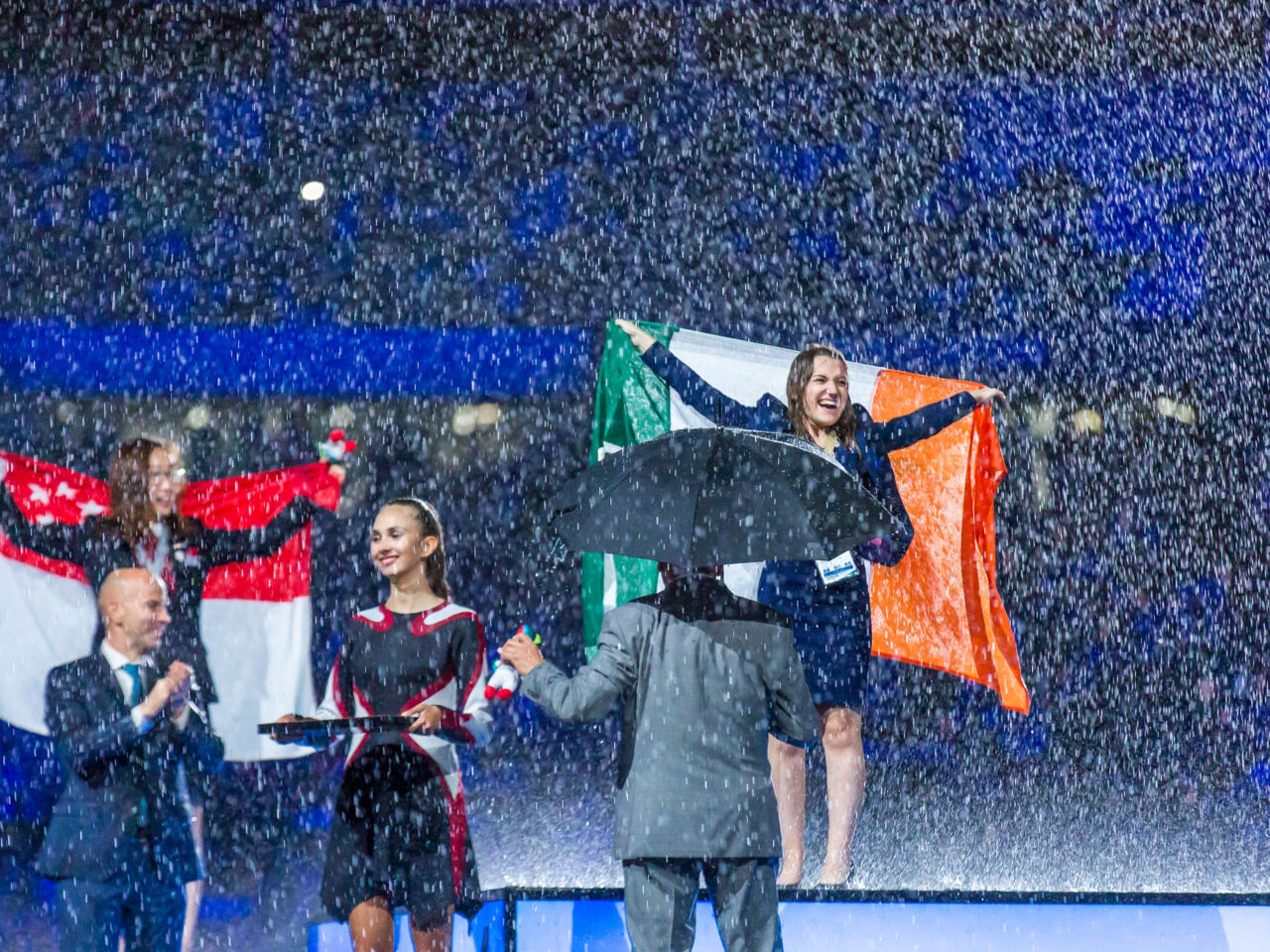21 April 2023
Earth Day 2023: “Every skill, Competitor and Member plays its own part in helping WorldSkills become a more sustainable event”
In recognition of Earth Day on 22 April, we talk to Freight Forwarding Champion Megan Yeates about the future of logistics, the climate crisis, and her views on how to make WorldSkills Competitions greener.

Born and raised in Dublin, Ireland, Megan Yeates is a Freight Forwarding Champion and gold Medallist from WorldSkills Kazan 2019. At her young age, Megan has already amassed a wealth of experiences that have given her a voice within Ireland’s logistics sector.
She advocates for more female presence in logistics, and for apprenticeships as a solution to the increased skill gap left by a retiring generation of professionals. She is currently an Apprentice Coordinator at FTA Ireland, a not-for-profit membership trade association for the Irish freight and logistics industry. She recently attained her master’s degree in Strategic Management, Logistics, Materials, and Supply Chain Management at the Technological University Dublin, and is gearing up to start her PhD in Sustainable Logistics later in the year.
In recognition of Earth Day, we talked to Megan about the future of logistics, the climate crisis, the impact of large-scale events, and her views on how to make WorldSkills Competitions greener.
How do you foresee the future of the logistics industry in the world we live in?
The climate emergency is here to stay. It is our responsibility to the next generation to play our part in trying to be more sustainable and leave the world in a better way than it was when we initially entered it. Logistics as an industry, by nature, is always changing and adapting. There are constantly new developments, new policies and targets, new technologies, and new ideas. We are a very adaptive industry that embraces change and always looks for quicker, simpler, more effective ways to reach solutions. There is no way to predict how things will look in 20–50 years time. Industry 4.0, last mile technologies (such as drone delivery), driverless cars/trucks/boats, electric vehicles – it’s all uncertain and some things will take off and others will be short-lived.
The logistics industry will always need to be conscious of its impact on the climate emergency and how it can adapt to help reduce its emissions. But there is no quick, easy solution. It will always be an ongoing topic of discussion. The best thing the logistics industry can do is to continue to be aware of its impact and never stop talking about sustainability. It is all dependent on awareness and education - this is the most important element of climate change. Without awareness and understanding, positive changes will not be made. WorldSkills Competitions are a great platform and opportunity to create best practices and educate on sustainability as people from all over the world with different levels of understanding and different levels of education on sustainability gather.

What generates the most amount of emissions in large-scale events such as WorldSkills?
An event of the scale of WorldSkills will always have emissions associated with it as teams travel from all across the world by plane, train, cars, and buses. Bringing thousands of Competitors, Experts, delegates and spectators will produce a large volume of waste. We need to be more consciously aware of the waste that is being produced and how it can be handled more sustainably. Catering is also a large generator of emissions at events. A lot of waste and surplus food is produced. And finally, a lot of promotional items are given out during Competitions. This can include a lot of plastic. A lot of this material ends up going to landfill as people genuinely don’t want it or won’t keep/use it. While promotional items are fun to give out to create talking points, it involves the transport to ship all these promotional goods, the handling and giving out of the items, and then they end up discarded or dumped when the novelty wears off.
From the logistics perspective, how does a greener, more sustainable future look for events as a WorldSkills Competition?
A greener, more sustainable future for events such as WorldSkills Competitions involves planning ahead when it comes to shipping tools, equipment, and material to be able to move them in the most sustainable way, rather than relying on faster, less sustainable means of transport. Skills should also consider what equipment and material is essential. Like packing for a summer holiday, we as humans are guilty of overpacking and bringing items that are not essential, but we bring ‘just in case’, when in reality some items are not required. If we are moving equipment and material that is not used at the Competition, then we are being less sustainable because we are moving unnecessary items, creating additional emissions. Also, if there are items which can be sourced locally to the venues, then this should be considered to reduced the amount of material and equipment that is moved across long distances. Asking each skill to evaluate its Test Project to make sustainable changes and evaluate its competition set up to see how it can reduce its floor plan, reduce its energy consumption, reduce its use of materials (especially single use).
Each skill, Competitor, and Member plays its own part in helping WorldSkills become a more sustainable and environmentally friendly event. The expectation cannot solely come from WorldSkills to make all the changes at a high level, changes must be made by everyone involved to help make a positive impact. But WorldSkills must play their part to help raise awareness and encourage everyone involved to take a more sustainable approach.